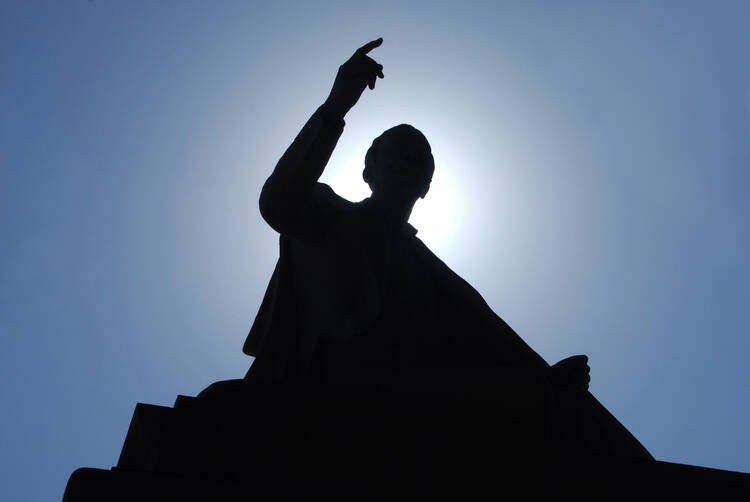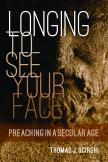How to build a better preacher
Here is a book aimed at reviving Catholic preaching that hits its mark. Thomas J. Scirghi, S.J., an associate professor at Fordham University, is a renowned academic expert and a master of the art. His inspiring vision can be succinctly put: “Preaching is the act of talking to people about Jesus Christ.” Christian preaching announces God’s good news for us in Jesus. Our personal experiences of God’s gracious help are recounted; the old story is told in a new way when the Scriptures are opened to us. Those hearers whose “hearts burn within them” are moved to action in their daily lives. The sermon becomes “portable.”
Scirghi recognizes how much preparation good preaching requires. He offers wise and practical guidelines for how to proceed—and how not to. Preaching differs from impersonal lecturing or theological commentary—even on church or community concerns. Preachers should never “leave Jesus in the sacristy.” Nor are they called to be entertainers, especially not by relying on joke books. Yet humor and laughter have an important role. Humor engages attention and engenders the sense that the preacher stands with his or her listeners.
Crafting the homily begins with personal listening and spiritual reflection. Research in theological commentaries may open the meanings of the day’s Scriptures. What personal insights, experiences and meaningful stories come to mind? No rote reading of someone else’s prepared sermon can substitute for first hand witnessing.
The organization and words of the homily must be carefully wrought. Scirghi recognizes that the gift of language gives unique glory and power to humankind. Preachers who work at their preparation will develop their own unique style.
Since we are embodied creatures, physical rehearsals always improve performance. Attention to voice, stance, timing, use of notes and to eye contact produce better performance.
Scirghi ends his compact book with a discussion of the special challenges involved in preaching at weddings and funerals. In brief: Don’t let celebrating God’s story in Jesus become lost, either to a eulogy of the deceased or to the sentimental social ritual of the bride and groom’s special day.
Scirghi fearlessly defends his convictions with his characteristic dry humor. So was he teasing when he stated without comment that they use powerpoint presentations at funerals in Australia? One thing is for certain: By that point his readers will be longing to have this book delivered to and absorbed by every parish in the land.
This article also appeared in print, under the headline “How to build a better preacher,” in the August 7, 2017, issue.











